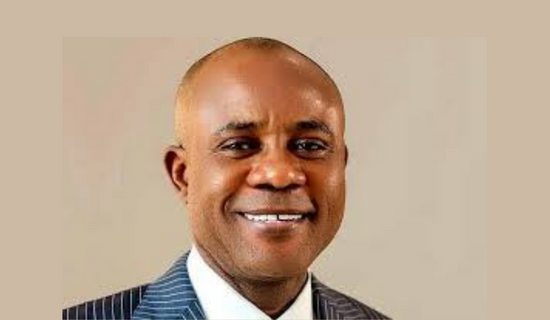The Enugu State government, under the leadership of Governor Peter Mbah, has solidified its commitment to women’s empowerment by signing a Subsidiary Loan Agreement for the Nigeria for Women Project. This initiative, supported by the World Bank, aims to uplift the livelihoods of women across the state by providing enhanced access to crucial resources such as livelihood support, financial services, and capacity-building programs. The project’s focus aligns with the state government’s vision of fostering economic empowerment and improving the overall well-being of women in Enugu. This commitment signifies a significant step towards achieving gender equality and inclusive development within the state. The project promises to unlock numerous opportunities for women-led businesses, contribute to industrial growth and export potential, enhance food security, and promote financial inclusion for vulnerable households.
The signing of the Subsidiary Loan Agreement, coupled with the prompt remittance of the Counterpart Fund, demonstrates the Enugu State government’s genuine belief in the potential of women and their pivotal role in the state’s economic and social progress. This proactive approach underscores the administration’s dedication to providing women with the necessary tools and support systems to thrive and contribute meaningfully to society. The project’s activities encompass a multifaceted approach, encompassing the establishment of Women Affinity Groups, provision of grants, financial literacy training, and comprehensive entrepreneurship skills development. These initiatives aim to empower women economically, enhance their financial literacy, and equip them with the skills necessary to succeed as entrepreneurs.
Commissioner Ngozi Enih, of the Ministry of Children, Gender Affairs and Social Development, reiterated the state government’s commitment to gender equality and inclusive development, emphasizing the essential role women play as the bedrock of society and the economy. The government’s investment in the Nigeria for Women Project represents a tangible commitment to empowering women and fostering a more equitable and prosperous future for all. By providing access to financial resources, skill development, and support networks, the project seeks to create a sustainable pathway for women’s economic independence and overall well-being.
Blessing Ogbonna, the State Project Coordinator for the Nigeria for Women Project, expressed deep gratitude to Governor Mbah for his visionary leadership and unwavering support for women’s empowerment. This timely intervention is poised to usher in a new era of empowerment for women in Enugu State, offering them unprecedented opportunities for personal and professional growth. The project’s comprehensive approach, encompassing financial support, skills development, and community building, aims to create a lasting impact on the lives of women and contribute to the overall socio-economic development of the state.
The Nigeria for Women Project in Enugu State represents a significant milestone in the pursuit of gender equality and economic empowerment. By investing in women, the state government recognizes their crucial role in driving economic growth, fostering social development, and building a more resilient and prosperous future for all. The project’s multifaceted approach, encompassing financial assistance, skill development, and community support, promises to create a transformative impact on the lives of women and contribute significantly to the state’s overall progress.
This initiative marks a new dawn for women in Enugu State, offering a pathway toward greater economic independence, enhanced social standing, and increased participation in the state’s development. The project’s comprehensive design addresses the multiple challenges that women face, providing them with the resources and support they need to succeed as entrepreneurs, community leaders, and agents of change. The Enugu State government’s commitment to women’s empowerment is not merely a policy statement but a tangible investment in the future of the state, recognizing that women’s progress is intrinsically linked to the overall prosperity and well-being of society.














